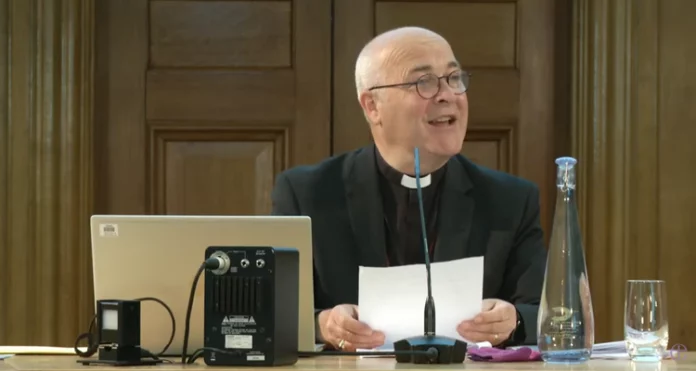In his book on the Lord’s Prayer, the New Testament theologian Tom Wright makes the point that the prayer Jesus taught us is “not just the spiritual version of the baby’s mug and spoon set” that will teach us how to pray, but “a suit of clothes designed for us to wear in our full maturity” and into which we still have growing to do.
In other words, we say the Lord’s Prayer, but also the Lord’s Prayer says us. It teaches us who God is. It teaches us how to pray. And it teaches us what to pray for. Even the first two words are a revolution. Although there are a few other examples of calling God Father in the Old Testament, this was relatively unknown. But, for Jesus, it is the starting point of his relationship with God, and it is the relationship he offers to us. Therefore, to call God Father, in the same way that Jesus did, is to enter into a relationship with God.
In this relationship, we understand ourselves to be profoundly loved, and begin to live – as Jesus did – as a child of God’s kingdom, following God’s ways, and seeking God’s truth. We are praying, says Pope Francis, to “the one who has given us life”. Not some cosmic entity, but a loving father.
A few weeks ago, I found myself a little misunderstood when I said that some who have never known a father present in their life, or, worse, were abused or neglected by their father, may find this word challenging. As the Church of England and all mainstream denominations come to terms with a shameful history of clerical abuse, being mindful of these things is really important. But what I wasn’t saying is that we should stop using the word. Simply that we need to be sensitive as we lead people in prayer.
As Jesus taught us, we pray to the God who is “Our Father”, and we help those whose experience of earthly fathers has been negative to discover the healing love of the Father of our Lord, Jesus Christ. And as has always been the case, we use other language to describe God, as well. What I was actually talking about was the very powerful first word of the Lord’s Prayer, which is “our”.
At a recent audience I had with the Pope, he concluded the meeting by inviting us to pray together. As we uttered that opening word, it powerfully struck me that saying this prayer commits us to each other. If God is our heavenly father, then we who say this prayer are sisters and brothers, and with this comes a profoundly important set of responsibilities and obligations about how we order our lives and the world.
And the fact that it is our God, not my God, runs through the whole prayer. Not my daily bread – but ours. Not my sins forgiven – but everyone’s. Not my will be done – but God’s. Indeed, is there a more important lesson for our world to learn than to understand what it means to ask for daily bread, to live with enough, and to find ways of sharing the world’s resources? And because it is our Father, not my Father, then the commitments we have to each other extend beyond usual human boundaries. The kingdom that we pray for is not a place, but a rule of love.
In the 8th century, no less a figure than the Venerable Bede, one of the towering intellectual forces of his age, wrote to a bishop in the north, exhorting him to teach people the Lord’s Prayer in their mother tongue. I think we should be doing the same today, and I intend to make this a large part of my ministry in the north of England over the next few years.
Of course, many people still know this extraordinary prayer. But many don’t. And even those of us who do know it, and say it every day, still need to grow into its challenging, capacious vision. Because we know it so well, we can easily take its meaning for granted. Knowing it by heart doesn’t mean it is in our hearts. We need to say it again. We need to learn its lessons of love.










